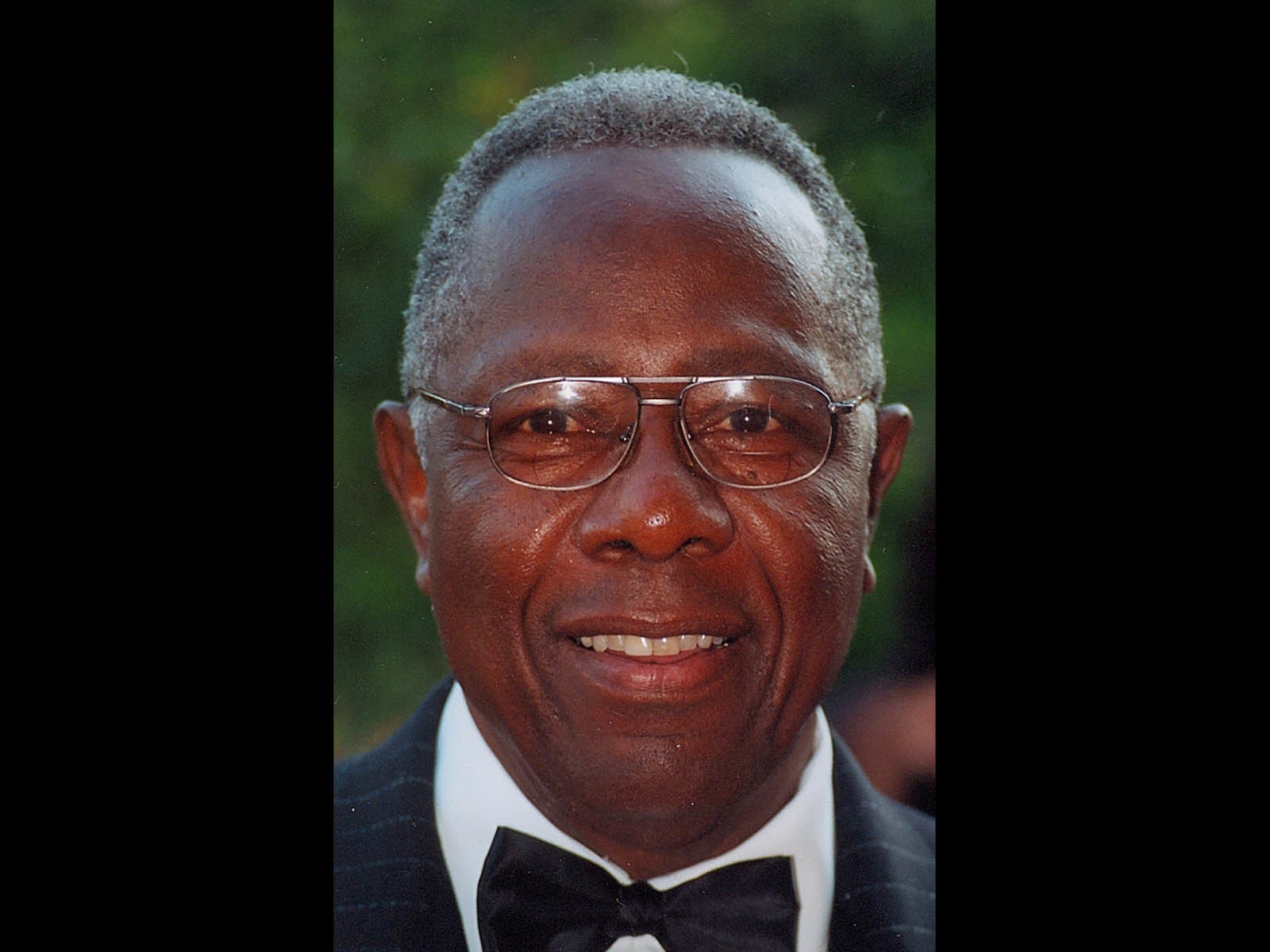Despite the fact that I grew up a rabid baseball kid in Brooklyn – not Atlanta or Milwaukee – I always loved Hammerin’ Hank Aaron (don’t get me started on the Dodgers passing on Aaron after a 1949 tryout!). And that surely would’ve even been true if the Brewers weren’t my AL team growing up.
Aaron – who died Friday morning at the age of 86 – wasn’t just a baseball player. In the first half of the 1970s, he was THE baseball player. It didn’t matter which team’s uniform he was wearing.
For a kid enthralled with baseball, Aaron seemed superhuman, a god among men.
Of course, there was the home run record – which I was disappointed (but not surprised) to learn later, as an adult, earned him threats from racists that he’d be killed and that his children would be kidnapped – but there was more.
There was his quiet, powerful demeanor, which earned him the Lou Gehig Memorial Award for character in 1970. Whenever I read or hear Teddy Roosevelt’s famous quote, "speak softly and carry a big stick; you will go far,” I picture Hammerin’ Hank.
Seeing him in a Brewers uniform around the same time Willie Mays donned Mets gear just about made me giddy.
After Brooklyn passed on Aaron, he signed with the Boston Braves, who sent him to their farm team in Eau Claire, beginning a long connection with Wisconsin. The Braves moved to Milwaukee a year later, and Aaron arrived in the bigs in 1954, where he quickly became a star player.
With the Braves in Milwaukee and, later, in Atlanta, he put up amazing numbers.
He was an All-Star his first year, and he gave Milwaukee a World Series victory in 1957. He tied and then beat Babe Ruth’s home run record, notching 755 (those final homers coming during his Brewers days). That feat would only be topped by a player (who used steroids during his career) decades later.
Aaron came back to Milwaukee, where he ended his career in a Brewers uniform in 1976. He remained active in baseball off the field for most of the rest of his life.
Aaron still holds the MLB records for RBI and total bases decades after his retirement, and has a lineup of achievements that remains extremely impressive.
He was inducted into the Baseball Hall of Fame in 1982 and 20 years later received the Presidential Medal of Freedom.
I didn’t know it as a kid, but later I learned of the struggles he faced as a young black ballplayer from Mobile, Alabama trying to make his way to the majors and how the move to Atlanta opened his eyes to the Civil Rights movement, which led him to get involved.
Right up until his passing, Aaron stayed active in good causes, publicly receiving a COVID-19 vaccine earlier this month to help reassure skeptics that it was safe.
As much as I can still picture Aaron’s early-mid ‘70s baseball cards in my and recall seeing his home run feats on television as a kid, my enduring memory of Aaron is one from my adulthood.
Checking in for a flight to Atlanta at Mitchell Airport, I was astonished to see Hammerin’ Hank and his wife walk up to the desk next to me. My jaw dropped as I realized who it was.
When the desk agent asked for identification, Aaron handed over his passport and I noticed his baseball-mitt sized hands. The same hands that clutched the bat each time he sailed 755 dingers over the outfield wall.
It’s one of the only times I’ve been completely and utterly star-struck and speechless. Here was Hank Aaron, in person, standing next to me. I was suddenly 9 years old again.
Not only did it provide me with another Aaron moment I’ll never forget, it taught me a lesson: even gods among men have to show I.D. at the airport.
Thank you, Mr. Aaron, for the memories. If anyone ever, “left it all on the field,” it was Hank Aaron, may he rest in peace.
Born in Brooklyn, N.Y., where he lived until he was 17, Bobby received his BA-Mass Communications from UWM in 1989 and has lived in Walker's Point, Bay View, Enderis Park, South Milwaukee and on the East Side.
He has published three non-fiction books in Italy – including one about an event in Milwaukee history, which was published in the U.S. in autumn 2010. Four more books, all about Milwaukee, have been published by The History Press.
With his most recent band, The Yell Leaders, Bobby released four LPs and had a songs featured in episodes of TV's "Party of Five" and "Dawson's Creek," and films in Japan, South America and the U.S. The Yell Leaders were named the best unsigned band in their region by VH-1 as part of its Rock Across America 1998 Tour. Most recently, the band contributed tracks to a UK vinyl/CD tribute to the Redskins and collaborated on a track with Italian novelist Enrico Remmert.
He's produced three installments of the "OMCD" series of local music compilations for OnMilwaukee.com and in 2007 produced a CD of Italian music and poetry.
In 2005, he was awarded the City of Asti's (Italy) Journalism Prize for his work focusing on that area. He has also won awards from the Milwaukee Press Club.
He has be heard on 88Nine Radio Milwaukee talking about his "Urban Spelunking" series of stories, in that station's most popular podcast.







